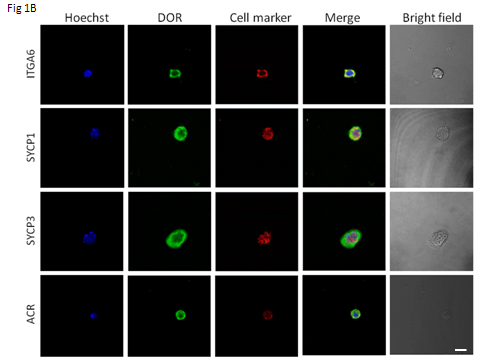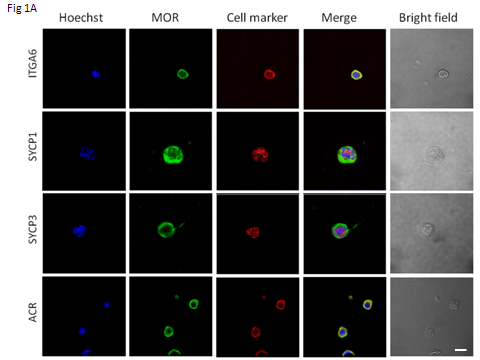Opioids regulate spermatozoon formation

Infertility has become a major medical and social problem worldwide and due in part to male infertility. Yet the molecular mechanisms involved in spermatogenesis are only now beginning to emerge. A piece of research led by the UPV/EHU doctor Nerea Subirán has for the first time described the presence of opioids in the cells involved in the formation of spermatozoa. The work has been published in Plos One.
In recent years, over 3 percent of births per year in developed countries have corresponded to children conceived through assisted reproduction techniques, which poses a considerable economic burden apart from physical and psychological problems. According to the World Health Organisation, the cases of infertility have increased exponentially in developed countries during the last 10 years. Specifically, male infertility represents about half of the cases of infertility. Failures during the production of spermatozoa—in other words, during spermatogenesis—produce non-functional or low-quality spermatozoa and resulting infertility. Yet the molecular mechanisms involved in the regulation of this process remain unknown despite their importance in reproductive health.
This new piece of work published in Plos One and led by the UPV/EHU researcher Nerea Subirán describes for the first time the presence of opioid receptors in the cells involved in spermatozoon formation. Opioid receptors are among the systems of cell communication and are capable of regulating physiological processes that require a high degree of coordination and communication between cell and tissue types. The study describes how these receptors participate in the spermatozoa production process in mammals. Specifically, their activation regulates the formation of the machinery that segregates the genetic information during spermatogenesis.
"Although this is basic scientific research using animal models, these studies are shedding light on the molecular mechanisms that control male fertility, and are helping us to better understand the causes of many cases of infertility and enabling new horizons to be opened up in the development of therapeutic targets and strategies to combat it," explained Dr Subirán.

















